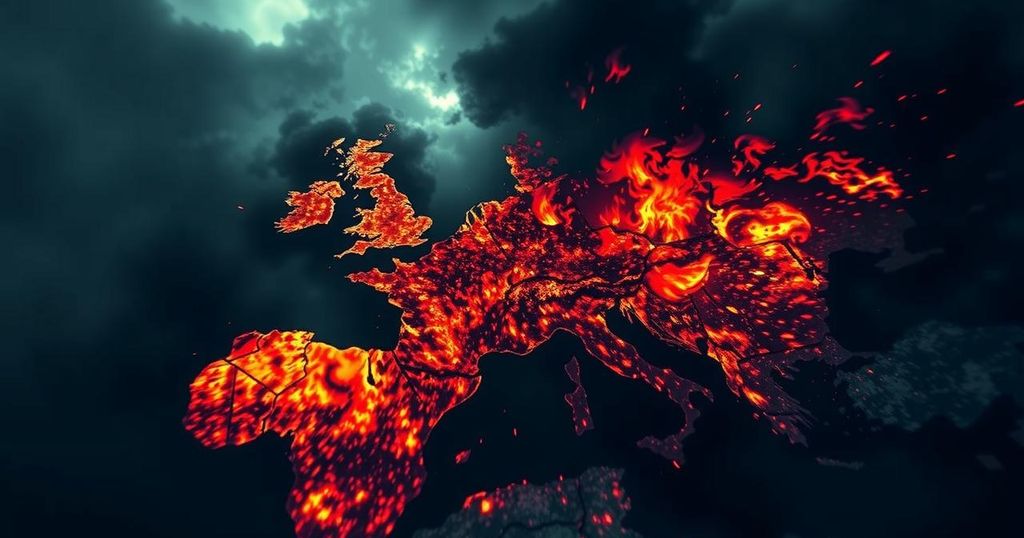Geopolitical Tensions Escalate in Syria Amid Rebel Offensive

A rebel offensive in northwest Syria, following a ceasefire between Israel and Hezbollah, has resulted in significant territorial gains against President Assad’s forces. This development challenges the support of Iran and Russia in the region, deepening existing geopolitical tensions.
Recent developments in Syria have unveiled significant shifts as Syrian rebels launched an offensive against President Bashar al-Assad’s forces, particularly in the northwest region. The assault followed a peace agreement between Israel and Hezbollah, showcasing a strategic timing by the rebels. Their advances resulted in control of substantial territories, including key locations such as Aleppo, which compelled both Russian forces and Iranian-backed militias to retreat. This turn of events highlights the complex web of geopolitical rivalries that have defined Syria since the onset of its civil conflict in 2011.
Iran and Russia, long-standing supporters of Mr. al-Assad, have faced setbacks as the situation escalates, complicating their efforts in a region already marked by diverse and competing interests. The ongoing conflict underscores the volatility of the area, where minor skirmishes can quickly explode into larger confrontations, affecting not only local factions but also international stakeholders. Thus, as the geopolitical landscape continues to shift, the path ahead for Syria remains uncertain amid ongoing turmoil and foreign involvement.
Syria has been embroiled in conflict since a popular uprising in 2011 escalated into a civil war, drawing in regional and global powers, each with distinct agendas. Iranian and Russian support for Assad aims to maintain their strategic foothold in the Levant, while various rebel factions, often supported by external parties, aspire to challenge the regime. The latest rebel offensive signals a critical juncture in the conflict, potentially altering alliances and control over important regions within Syria.
The recent rebel offensive in northwestern Syria marks a pivotal development in the ongoing conflict, with significant geopolitical implications. The setbacks faced by Iran and Russia could lead to reconfigured power dynamics, alongside the potential for further unrest in an already fragile region. As international interests collide, the future of Syria continues to hang in the balance, making it a focal point of global diplomatic and military strategy.
Original Source: www.nytimes.com






